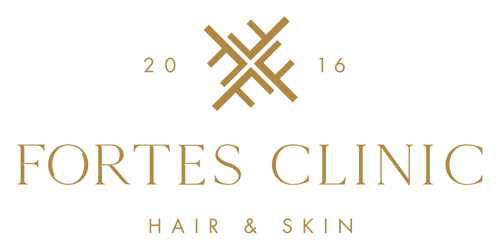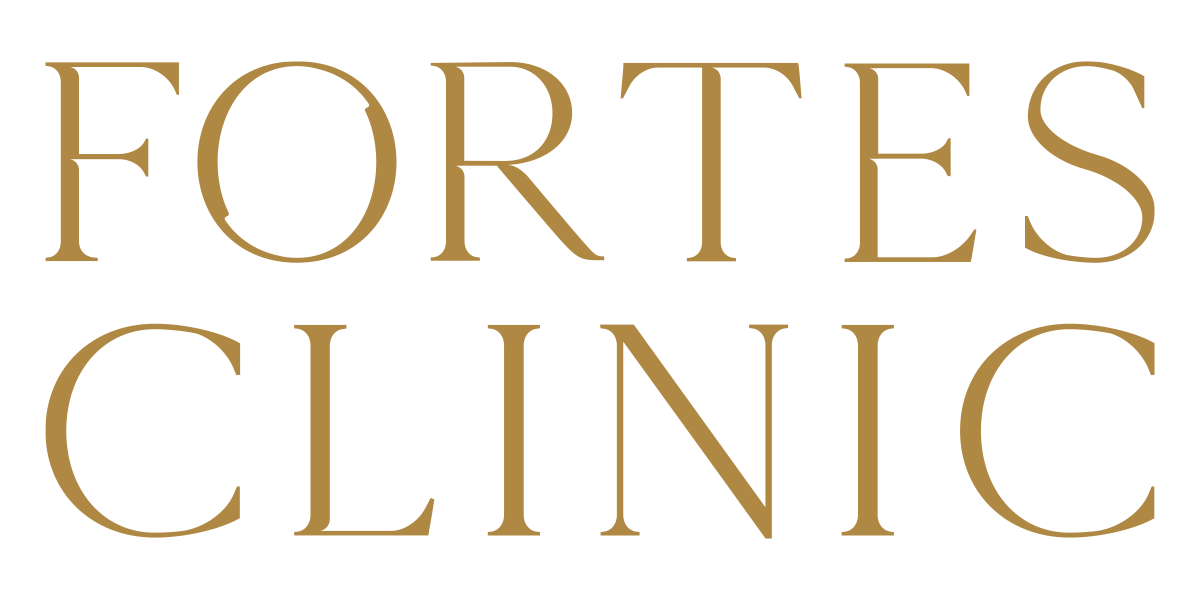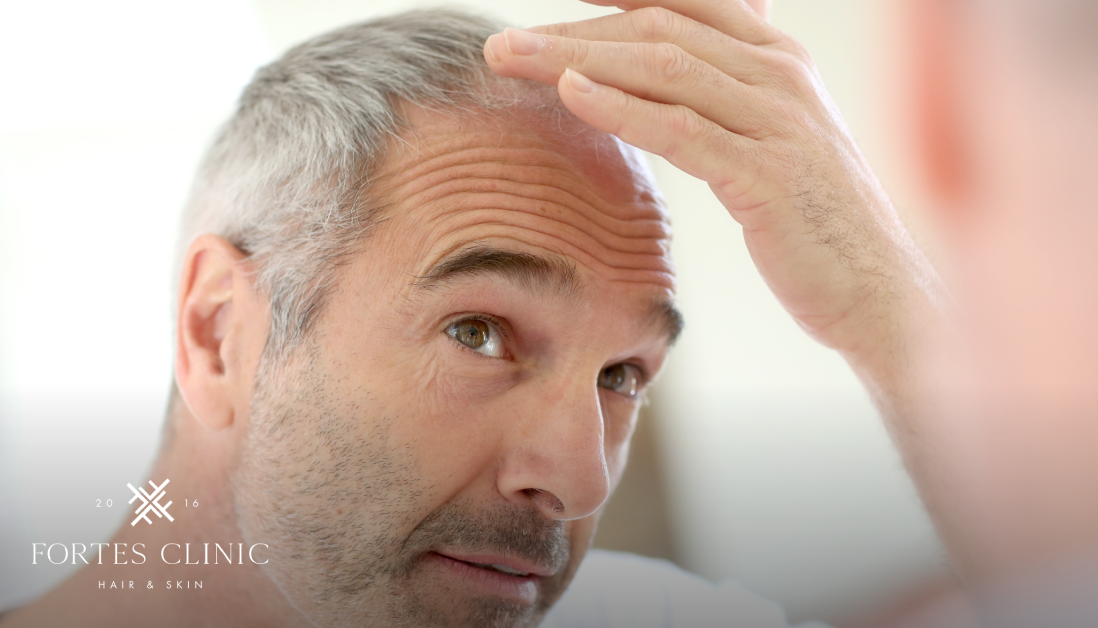Hair loss isn’t always genetic. In fact, the relationship between hair loss and lifestyle is often underestimated. At Fortes Clinic, we see many patients whose daily habits are quietly accelerating their hair thinning or preventing successful regrowth. The good news? Identifying these lifestyle triggers is the first step toward healthier, fuller hair.
Understanding the Connection Between Hair Loss and Lifestyle
Hair follicles are incredibly sensitive to changes within the body. Factors such as diet, stress, sleep and environmental exposures can all impact hair density and quality. While genetics may lay the foundation, your lifestyle habits could be influencing how quickly or severely your hair loss progresses.
Poor Nutrition and Hair Loss
One of the most common links between hair loss and lifestyle is nutrition. A lack of essential nutrients can disrupt the hair growth cycle. Protein, iron, zinc, biotin and omega-3 fatty acids are especially important for healthy hair follicles. If your diet is restrictive, low in protein, or missing key vitamins, your hair could suffer as a result.
Crash diets, especially those that involve rapid weight loss, can lead to noticeable shedding. Supporting your hair starts with fuelling your body. Eating a balanced, nutrient-rich diet can provide the foundation your scalp needs for optimal growth.
Stress and Its Impact on Hair Thinning
Chronic stress can trigger a condition called telogen effluvium, where large numbers of hairs prematurely enter the shedding phase. This connection between hair loss and lifestyle stress is well-documented. Whether it’s emotional strain or physical trauma, high stress levels disturb the natural growth cycle.
Incorporating stress management techniques like meditation, yoga, deep breathing, or even regular walking can lower cortisol levels and create a more supportive environment for hair regrowth. At Fortes Clinic, we often recommend lifestyle adjustments alongside clinical treatments to reduce the impact of stress on the scalp.
Sleep and Hair Regeneration
Sleep is the body’s natural repair process, and that includes your hair follicles. Poor sleep quality or inconsistent sleep routines can increase inflammation and reduce cellular turnover, both of which hinder healthy hair growth.
Aim for 7 to 9 hours of uninterrupted sleep per night. Going to bed and waking up at consistent times helps regulate the hormones that support the hair cycle. Improving sleep hygiene is a simple yet powerful way to support recovery if you’ve noticed thinning.
The Role of Smoking and Alcohol in Hair Loss
Hair loss and lifestyle choices like smoking and excessive alcohol use are closely related. Smoking constricts blood vessels, including those that feed the scalp, which limits the delivery of oxygen and nutrients. Alcohol, on the other hand, can dehydrate the body and interfere with nutrient absorption.
If you’re trying to improve your hair health, reducing or eliminating these habits could make a significant difference. The damage may not be immediately visible, but over time, these lifestyle factors can contribute to a weaker hairline and sparser coverage.
Hair Styling Habits That Can Lead to Hair Loss
Certain styling choices can also create physical stress on the scalp. Repeated use of tight hairstyles, heat styling tools, or chemical treatments can lead to traction alopecia or follicle weakening.
A few adjustments can help reduce this risk:
- Avoid tight ponytails, braids or extensions worn frequently.
- Use heat tools on a low setting and with thermal protection.
- Rotate your hairstyles to relieve consistent tension in one area.
These changes not only support long-term growth but also help you get the most out of treatments such as hair transplants or PRP therapy.
Scalp Care as a Lifestyle Habit
Caring for your scalp is often overlooked, yet it’s a crucial lifestyle factor affecting hair loss. A clean, balanced scalp is essential for healthy follicle function. Build-up of oils, product, or dead skin can clog follicles and limit growth.
Use a gentle shampoo free from sulphates or parabens and consider incorporating weekly scalp massages or exfoliation. At Fortes Clinic, we’ve seen how routine scalp care can improve the results of more advanced hair loss treatments.
Exercise and Circulation for Hair Growth
Regular movement boosts circulation, and that includes blood flow to the scalp. Increased blood supply delivers more oxygen and nutrients to the follicles, supporting a healthier growth cycle.
Exercise also reduces stress and supports sleep quality, tying together many of the other lifestyle factors we’ve already explored. Just be mindful to cleanse your scalp properly after sweaty workouts to avoid clogged pores or irritation.
When Lifestyle Changes Aren’t Enough
For some patients, lifestyle improvements can slow down shedding and support regrowth. However, they may not be enough to fully restore density, especially in areas where hair loss is more advanced.
If you’ve already noticed visible thinning, recession or patchy growth, clinical intervention might be necessary. At Fortes Clinic, we offer tailored solutions such as:
- Hair transplant surgery
- PRP hair treatment
- Finasteride and Minoxidil support
- Personalised consultations to find the best treatment plan for you
Whether your hair loss is early-stage or already affecting your confidence, we’ll guide you toward long-term results that suit your goals and lifestyle.
Daily Lifestyle Habits That Support Healthy Hair
To round things off, here’s a quick reminder of healthy lifestyle practices you can start today:
- Eat a balanced diet with enough protein and iron
- Get 7–9 hours of consistent sleep
- Exercise regularly to improve circulation
- Reduce or eliminate smoking and alcohol
- Avoid harsh styling routines
- Maintain regular scalp care
- Manage stress using tools that work for you
These habits don’t replace medical treatment, but they form the foundation of a healthy scalp and support any progress you make with professional intervention.
Medication and Topical Treatments
If you’re dealing with genetic hair loss or early thinning, you may benefit from medications after a hair transplant like Finasteride or Minoxidil, which can help preserve existing hair and delay further loss.
Final Thoughts on Hair Loss and Lifestyle
Hair loss and lifestyle are undeniably linked. While your genetics may set the stage, your daily choices can accelerate or slow the process. From diet and sleep to stress and styling, being mindful of how you live can influence how your hair looks and feels.
If you’re ready to take control of your hair health, start by adjusting your routine and speaking to a professional. The team at Fortes Clinic is here to help you find a personalised, long-term approach that supports both your hair and your overall well-being.
Your Next Step: Speak to an Expert
If you’re concerned that your daily habits may be affecting your hair, the first step is to talk to a specialist. At Fortes Clinic, we offer discreet, honest consultations to help you understand your options and take action, whether through lifestyle changes, medical therapies or surgical intervention.



